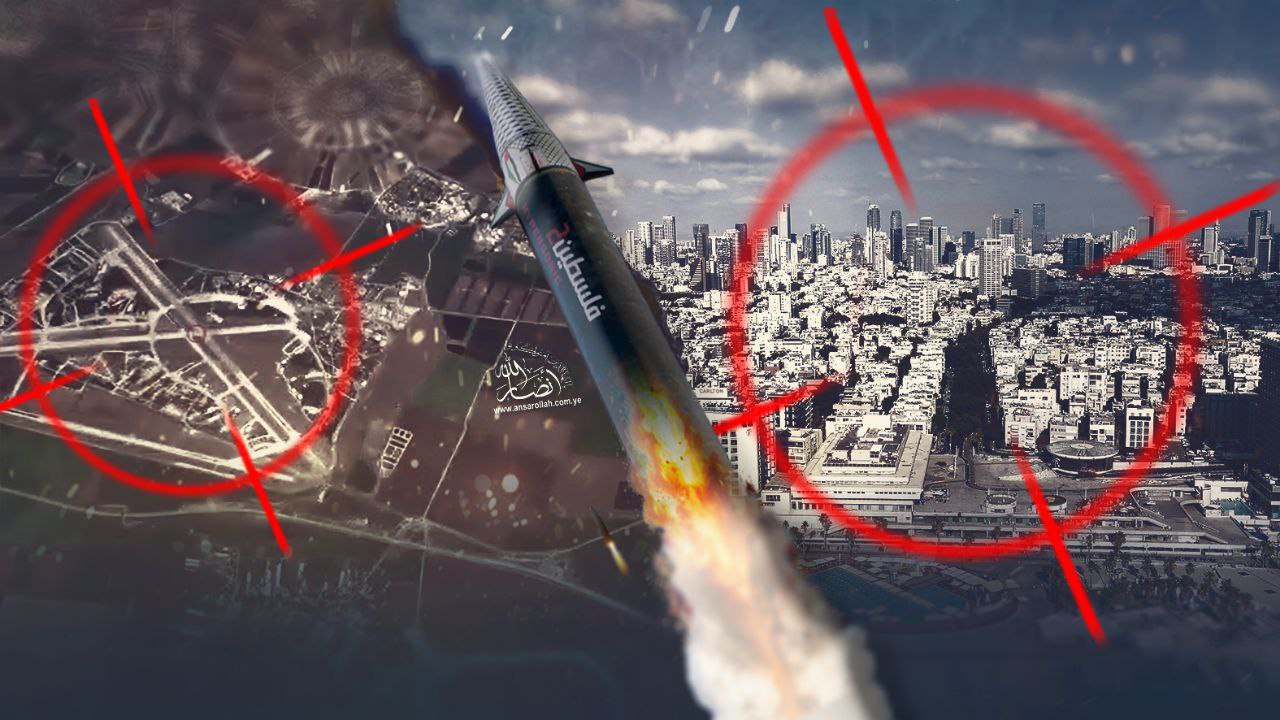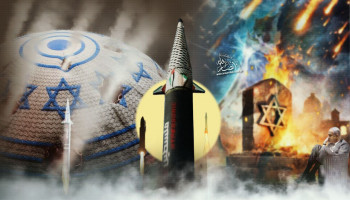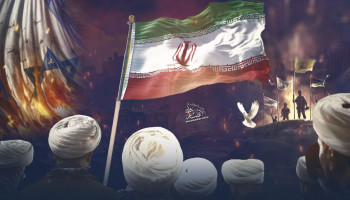Published: Muharram 8, 1447 AH
The unwavering consistency of Yemen’s support axis confirms the sincerity of the officially declared and popularly backed stance, standing in stark contrast to the Zionist regime’s clear inability to stop or even limit its impact.
The Palestine 2 missile dominates the skies over occupied Palestine, joined by the Dhu al-Fiqar missile and several drones. Together, they generate a consistent state of near-daily fear. Life comes to a standstill, shelters fill up, and air travel halts under their looming presence. Aircraft turn back mid-flight, and others hover in waiting — arguably the most dangerous flight operations in the world today. Despite all Zionist reassurances, there is no sense of safety, and airliners remain unwilling to resume flights to and from Lod Airport. The general atmosphere inside the occupied territories is as it should be: unfit for the continuation of the occupation, and unsuitable for Zionist settlers to live in.
What matters most is that Gaza must not be left alone. Yemen has not abandoned it — and never will. The escalating support campaign continues with a growing effect. Yemen is succeeding in its steadfastness, while the enemy is failing to stop or curb its consequences. Among those consequences is the deepening instability in the so-called “national and societal security” of the occupying entity, where security is the condition for survival — and its absence spells the opposite.
Between the sounds of sirens and explosions heard across different areas of occupied Palestine, and the enemy army’s statements claiming interception, Zionists are engulfed in fear. A cloud of uncertainty spreads across daily life, inflicting severe psychological and economic damage that continues to accumulate and dig deeper.
Zionist reports estimate the direct economic losses from Yemeni attacks in the billions of dollars, as a direct result of halting Zionist navigation in the Red Sea and the paralysis of the Port of Umm al-Rashrash (Eilat). Added to this are the mounting costs and burdens of the airspace blockade that Yemen has successfully — if partially — imposed, in addition to the severe damage sustained by various regions due to direct hits on several targeted facilities since the onset of Yemen’s support operations.
Faced with Yemen’s escalating challenge, the Zionist regime’s incapacity grows more evident, prompting a barrage of threats. These range from the “War Minister” Yoav Gallant to the U.S. ambassador in “Tel Aviv,” down to leaks from so-called informed sources, all attempting to threaten Yemen with future strikes. Zionist “War Minister” Israel Katz vowed retaliation against Yemen, threatening that “Yemen’s fate will be like Iran’s” — a reference to recent airstrikes on Iranian positions. However, Zionist media labeled these statements as mere rhetoric, meant to cover up the Zionist failure in ending or limiting the Yemeni challenge — and according to Zionist experts — these threats fall far short of meeting the level of the Yemeni position.
Zionist media, instead, has focused on the failure of the “Hetz” (Arrow) defense system in intercepting many missiles in recent weeks, as confirmed by several Zionist reports.
In parallel, U.S. Ambassador to “Israel” Mike Huckabee was quick to raise the specter of deploying B-2 bombers against Yemen — a threat many observers dismissed as unserious, especially following Washington’s failure to achieve tangible results during prior naval confrontations with Yemeni forces, which revealed unexpectedly advanced military capabilities.
In reality, the official statements from leaders of the Zionist entity and their American allies reflect an unprecedented state of alarm — but embedded within them is an implicit admission of helplessness in countering the Yemeni threat.
Reports highlight the failure of Zionist defense systems to intercept a portion of the missiles, underscoring the fragility of the enemy’s security infrastructure and weakening the credibility of its threats. With limited viable options on the Zionist response table — and the inherent risks of launching what would be the longest-range air operations by the Zionist enemy's Air Force — the challenges remain immense, especially with the looming unknowns the Yemeni Armed Forces still conceal, potentially altering the course of the conflict at any moment.
Regardless of upcoming scenarios, one Yemeni constant remains clear: whether before or after a response, Yemen — both officially and popularly — insists that its stance is a principle. It will not be stopped by bombing, nor shaken by pressure. Most importantly, it is not bound by the logic of retaliation — it is guided solely and unequivocally by the battle for liberation.







